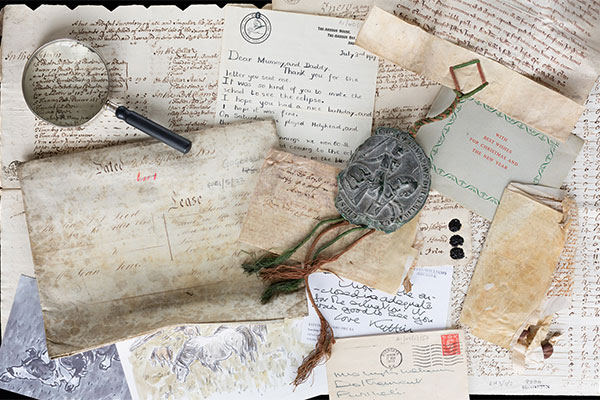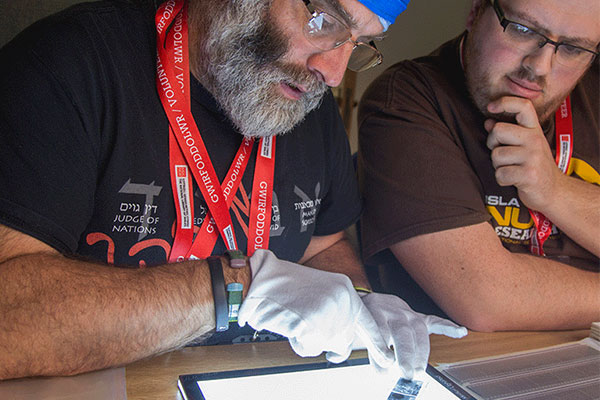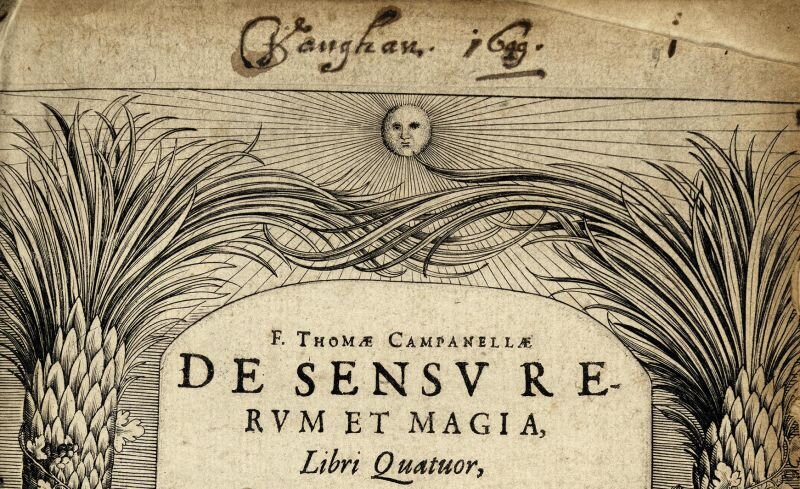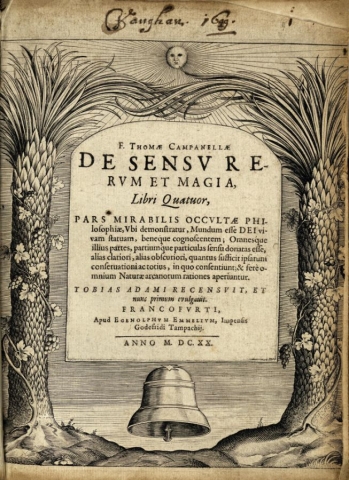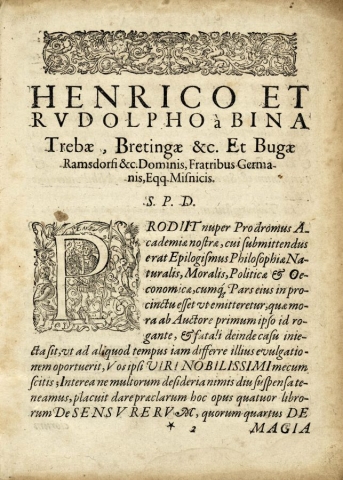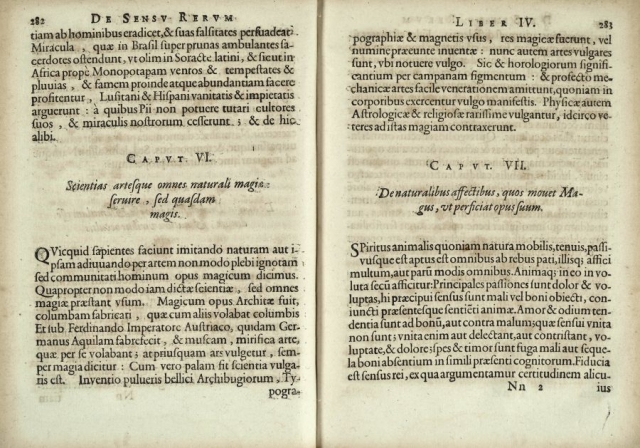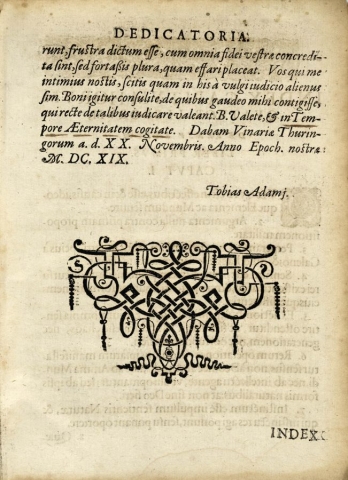The Library recently bought a copy of the rare book De sensu rerum et magia by Tommaso Campanella. The volume comprises four ‘books’ in Latin and used to belong to the library of Henry Vaughan, the famous seventeenth century poet and mystic who lived in Brecon. It bears the signature of Henry Vaughan and contains some notes by him.
Tommaso Campanella (1568-1626) was a Dominican monk, philosopher and writer who tried to reform the church by reconciling the renaissance of learning with Catholic theology. He was arrested on numerous occasions for different heresies. He wrote his most famous book The City of the Sun in 1602 while he was a prisoner in Spain after he took part in the attempt to free Calabria from Spanish rule. He followed the ideas of Bernardino Telesio and supported a movement towards practicality and empiricism and away from Aristotle's theoretical logic. Campanella believed that everything in the world has feelings to a certain extent, and therefore have emotions such as sympathy and hostility. He believed that this is true for plants, metals, and rocks too. However, he believed that human beings have much more sense and feelings due to their awareness of God. According to Campanella, this sense can be used by wise people to do magic tricks and many examples of these are described in the book De sensu rerum et magia.
As a metaphysical poet, Campanella's influence on Henry Vaughan can be seen in his work. Vaughan is mainly known for his religious poetry Silex Scintillans, 1650-1655 and he was also a writer, translator, and doctor. Like his twin, Thomas (1621-1666), who was a clergyman and philosopher, Vaughan was interested in alchemy (a form of magic). Vaughan chose the nickname The Silurist which referred to his admiration for the Silures, a Celtic tribe from south Wales who fought against the Romans. This name shows his fondness for the Brecon area and the Bannau Brecheiniog mountains.
Books from Henry Vaughan's library are very rare. Until recently their existence was only known in the Library Company of Philadelphia. We are delighted to have been able to acquire one of them for the National Library of Wales. This will be a valuable resource for our nation by enabling our users to discover more about Henry Vaughan and the ideas that influenced him and his contemporaries.
Category: Article
